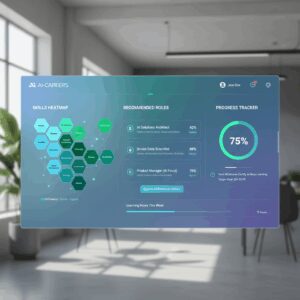Fractional Real Estate: Owning Property Without a Mortgage

For decades, the path to real estate ownership was straightforward but daunting: save for a down payment, qualify for a mortgage, and take on decades of debt. Today, a new model is opening doors for people who want to invest in property without the heavy financial lift—fractional real estate ownership.
This trend is reshaping the way investors, renters, and even vacation-goers think about property. But what exactly is fractional real estate, and how does it compare to traditional ownership? Let’s break it down.
What Is Fractional Real Estate?
Fractional real estate allows multiple investors to collectively purchase and share ownership of a property. Each investor buys a “fraction,” or share, which gives them proportional rights to income, appreciation, and sometimes even usage of the property.
Think of it as owning a slice of the pie instead of buying the whole thing. Thanks to digital platforms and new investment models, it’s now possible to invest in real estate with just a few hundred or thousand dollars—without applying for a mortgage or committing to a full property.
How It Works
Fractional ownership can take several forms:
- Crowdfunded Real Estate Platforms
Investors pool funds online to purchase commercial buildings, rental properties, or vacation homes. You earn returns through rental income and property appreciation. - Vacation Property Sharing
A group of buyers splits the costs of a luxury vacation home. Each owner receives the right to use the property for a set number of weeks each year, plus the chance to benefit from property appreciation. - Tokenized Real Estate
Using blockchain technology, properties are divided into digital “tokens.” These tokens can be bought, sold, and traded like stocks—bringing liquidity to real estate investment in ways traditional ownership doesn’t.
Benefits of Fractional Real Estate
- Lower Barriers to Entry
You don’t need a six-figure down payment or a perfect credit score to invest. Many platforms allow entry with just $500–$5,000. - Diversification
Instead of sinking all your savings into one house, you can own fractions of multiple properties—spreading risk across markets. - No Mortgage Hassles
Forget the stress of mortgage applications, interest rates, and decades of debt. Fractional ownership skips that step entirely. - Access to Premium Properties
Fractional models open up opportunities to “own” a slice of high-value commercial properties or vacation homes that would normally be out of reach. - Passive Income
Many fractional investments distribute rental income to investors, creating a steady revenue stream without the headaches of being a landlord.
Drawbacks to Consider
- Limited Control
You don’t get to make decisions about tenants, décor, or maintenance. These are handled by management companies or majority owners. - Liquidity Can Vary
While tokenized real estate improves liquidity, many fractional ownership models require you to hold shares for years before selling. - Fees
Management and platform fees can eat into returns, so it’s important to read the fine print. - Legal Complexity
Regulations around fractional and tokenized real estate are still evolving, which may introduce risks for investors.
Who Should Consider Fractional Ownership?
- New Investors testing the waters of real estate without large commitments.
- Young Professionals who want exposure to property markets but can’t afford a mortgage.
- Experienced Investors looking to diversify their portfolios without adding landlord responsibilities.
- Vacationers who want partial access to a second home without full ownership costs.
Fractional real estate is redefining what it means to “own property.” For those priced out of traditional homeownership or seeking a flexible investment option, this model offers an exciting alternative.
It’s not without its risks—fees, regulations, and limited control can pose challenges—but the potential benefits of lower barriers, diversification, and access to premium properties are hard to ignore.
In a world where mortgages feel increasingly out of reach for many, fractional ownership provides a new path toward financial growth and stability. The future of real estate may not be about owning the whole house—but rather owning just the right piece of it.
Unlock Full Article
Watch a quick video to get instant access.








